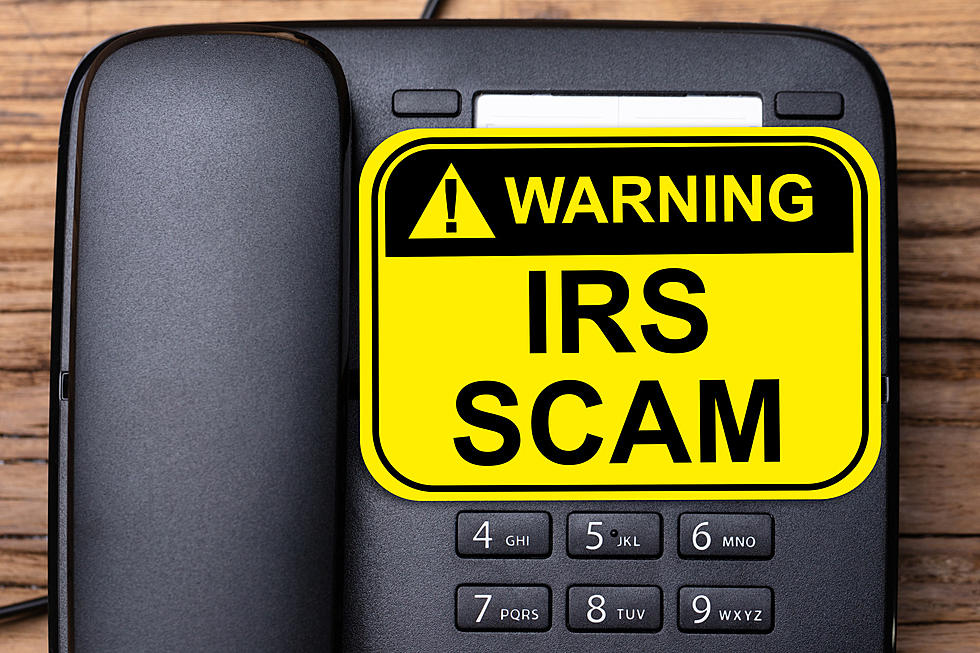
Missoula Tax Expert Warns About IRS ‘Phishing and Smishing’ Scams
Missoula, MT (KGVO-AM News) - Walt Kero with Kero, Byington and Associates CPA’s appears on the KGVO Talk Back show twice a month, and on Wednesday, he brought up two scams that he has been warned about by the IRS, called ‘phishing’ and ‘smishing’.
“I get updates from the IRS and they actually use those terms,” began Kero, a CPA with over 50 years of experience. “Phishing’ is when you get an email from somebody trying to steal your identity and any other kind of nefarious thing they can think of. ‘Smishing’ was a new word to me, but it involves the exact same thing, only through texts.”
Walt Kero is a Frequent Guest on KGVO's Talk Back show with Tax Advice
Kero said a close look at each message will help to determine if it is ‘phishing’ or ‘smishing’.
“These are emails and texts, and even though they could look almost perfect, but here’s what to look for," he said. "I've gotten some from what says it’s from Microsoft and it looks really good, and they may even use the logo. It looks official as can be but the key thing to look at is what is the website, email, or the address they're using?”
Kero said it's vital to realize that the IRS only communicates through the mail, never on the phone, email, or text.
Kero Emphasizes the fact that the IRS ONLY communicates through the Mail
“If you get an email or a text that claims to be from the IRS, do not respond,” he said. “The IRS does not text and they don't email. These requests only want your personal information, so delete the text immediately. Do not reply and do not open any attachments. These are all attempts to steal your identity. And if your identity gets stolen, you just don't want to go there.”
Direct from the IRS website comes this message. “The IRS doesn't initiate contact with taxpayers by email, text messages, or social media channels to request personal or financial information. This includes requests for PIN numbers, passwords, or similar access information for credit cards, banks, or other financial accounts.”
There is also a helpful animated video on that site to help identify fraudulent methods often used to scam taxpayers.
READ MORE: Protect Yourself: Beware Of Tax Scams Targeting Montanans
Both the FCC and the IRS Warn about Phishing and Smishing Scams
From the FCC (Federal Communications Commission) comes this important information about ‘smishing’.
“Most people are aware of phishing – or email scams – but they may not realize scammers can also target them with deceptive text messages sent to their smart devices. It's called "smishing": a mashup of SMS – for "short message service" – and phishing.
A typical smishing scam message may seem like it's from a bank – maybe your bank – and include a link or phone number to bait you into clicking or calling. If you do, you stand a good chance of being hooked. And that's when the scammers get to work, manipulating your personal information, which they can sell and/or use in other scams. Smishers may also try to entice you into downloading malware to your device.
The FBI has issued warnings about smishing scams. In one such warning, the agency warned consumers about an increase in SMS/test message scams reported by the Internal Revenue Service. In this case, the bad actors phish for taxpayers' personal and financial information by including a phony web link in text messages that, if clicked, will take consumers to a counterfeit website.”
So, take Walt's advice. If you receive an email or a text from the IRS, hit 'delete' immediately!
LOOK: The biggest scams today and how you can protect yourself from them
More From Newstalk KGVO 1290 AM & 98.3 FM









